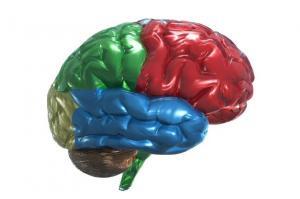 The developing field of cyberpsychology encompasses all psychological phenomena that are associated with or affected by emerging technology. Cyber comes from the word cybernetics, the study of the operation of control and communication; psychology is the study of the mind and behavior. Cyberpsychology is the study of the human mind and behavior in the context of human-technology interaction. However, mainstream research studies seem to focus on the effect of the Internet and cyberspace on the psychology of individuals and groups. Some hot topics include: online identity, online relationships, personality types in cyberspace, transference to computers, addiction to computers and Internet, regressive behavior in cyberspace, online gender-switching, etc.
The developing field of cyberpsychology encompasses all psychological phenomena that are associated with or affected by emerging technology. Cyber comes from the word cybernetics, the study of the operation of control and communication; psychology is the study of the mind and behavior. Cyberpsychology is the study of the human mind and behavior in the context of human-technology interaction. However, mainstream research studies seem to focus on the effect of the Internet and cyberspace on the psychology of individuals and groups. Some hot topics include: online identity, online relationships, personality types in cyberspace, transference to computers, addiction to computers and Internet, regressive behavior in cyberspace, online gender-switching, etc.
While statistical and theoretical research in this field is based around Internet usage, cyberpsychology also includes the study of the psychological ramifications of cyborgs, artificial intelligence, and virtual reality amongst other things. Although some of these topics may appear to be the stuff of science fiction, they are quickly becoming science fact as evidenced by interdisciplinary approaches involving the fields of biology, engineering, and mathematics. The field of cyberpsychology remains open to refinement as well as new purposes including inquiry into the nature of current and future trends in mental illness associated with technological advances.
It was around the turn of the millennium that people in the United States broke the 50 percent mark in Internet use, personal computer use, and cell phone use. With such a broad exposure to computers and their displays, our perceptions go beyond objects and images in our natural environment and now includes the graphics and images on the computer screen. As the overlaps between man and machine expand, the relevance of Human-computer interaction (HCI) research within the field of cyberpsychology will become more visible and necessary in understanding the current modern lifestyles of many people. With the rising number of Internet and computer users around the world, it is evident that computer technology’s effects on the human psyche will continue to significantly shape both our interactions with each other and our perceptions of the world that is literally “at our fingertips.”
A twitter page now exists that dedicates itself to the topic twitter_cyberpsychology
Contents
|
Courses
An MSc in Cyberpsychology is offered at the Dun Laoghaire Institute of Art, Design and Technology in Ireland. IADT has a four-walled VLab (a CAVE type virtual reality system) which students can use in research projects.
A MSc in Cyberpsychology is also being offered at Nottingham Trent University. The psychology department there has many experts in the field and engage in cutting edge research.
An honors “Introduction to Psychology in the Digital Age” and “Cyberpsychology” are courses being offered at the University of Maryland, College Park by professor and author Kent Norman.
An honours-level 12-week “Cyberpsychology” blended-learning module is offered at Glasgow Caledonian University by Jane Guiller, lecturer in psychology. [1].
An honours-level 26-week cyberpsychology final year unit called Social Psychology of the Internet using is offered at Bournemouth University by Dr Jacqui Taylor, Associate Professor in psychology. This has been taught for over 15 years and uses online discussions and traditional lectures and activities to enable students to experience many of the cyber-effects.
Media Psychology extended the concept of cyberpsychology by including the concepts in psychology, i.e., the study of human behavior. Cyber being artificial intelligence and behavior, psychology being human behavior. Media, includs pictures, graphics and sound, Cyber is artificial and psychology includes the human response. Media and communications psychology extends the concept even further. Bernard Luskin has launched an MA and Ph.D program in Media Psychology at Fielding Graduate University, a masters degree program in media psychology and social change at UCLA, in cooperation with Fielding, and a master’s degree in media and communications psychology at Touro University Worldwide. These pioneering programs are unique among the new and related programs being offered.
Psychotherapy in Cyberspace
Psychotherapy in Cyberspace, also known as e-therapy, is a controversial matter raising doubts related to efficiency and effectiveness. In this computer-mediated form of counseling a person e-mails or chats online with a therapist. E-therapy may be most effective when conducted via video conferencing, as important cues such as facial expression and body language may be conveyed albeit in a less present way. Many of the current controversies related to e-therapy have arisen in the context of ethical guidelines and considerations. No conclusions have been drawn on its effectiveness when compared to traditional psychotherapy.[1]
Bibliography
- The Psychology of Cyberspace by Dr. John Suler
- Gordo-López, J. & Parker, I. (1999). Cyberpsychology. New York: Routledge.
- Wallace, P. M. (1998). The Psychology of the Internet. Cambridge: Cambridge University Press.
- Whittle, D. B. (1997). Cyberspace: The human dimension. New York: W.H. Freeman.
- Luskin, B. J., “Casting the Net Over Global Learning,” (2002), Griffen Publishing.
Journals
- Journal of Computer Mediated Communication : http://jcmc.indiana.edu/
- Cyberpsychology: Journal of Psychosocial Research on Cyberspace : http://www.cyberpsychology.eu/
- Cyberpsychology, Behavior, and Social Networking: http://www.liebertpub.com/publication.aspx?pub_id=10
- Journal of CyberTherapy & Rehabilitation : http://www.vrphobia.eu
Books
- The Psychology of Menu Selection: Designing Cognitive Control at the Human/Computer Interface by Kent Norman
- Cyberpsychology: An Introduction to Human-Computer Interaction by Kent Norman (2008) Cambridge University of Press.
- Virtual Reality Therapy for Anxiety Disorders: Advances in Evaluation and Treatment by Dr. Brenda K. Wiederhold and Dr. Mark D. Wiederhold
References
Text orginally published at Wikipedia. See http://en.wikipedia.org/w/index.php?title=Cyberpsychology&oldid=407939823 Reproduced here under the Creative Commons Licence.

